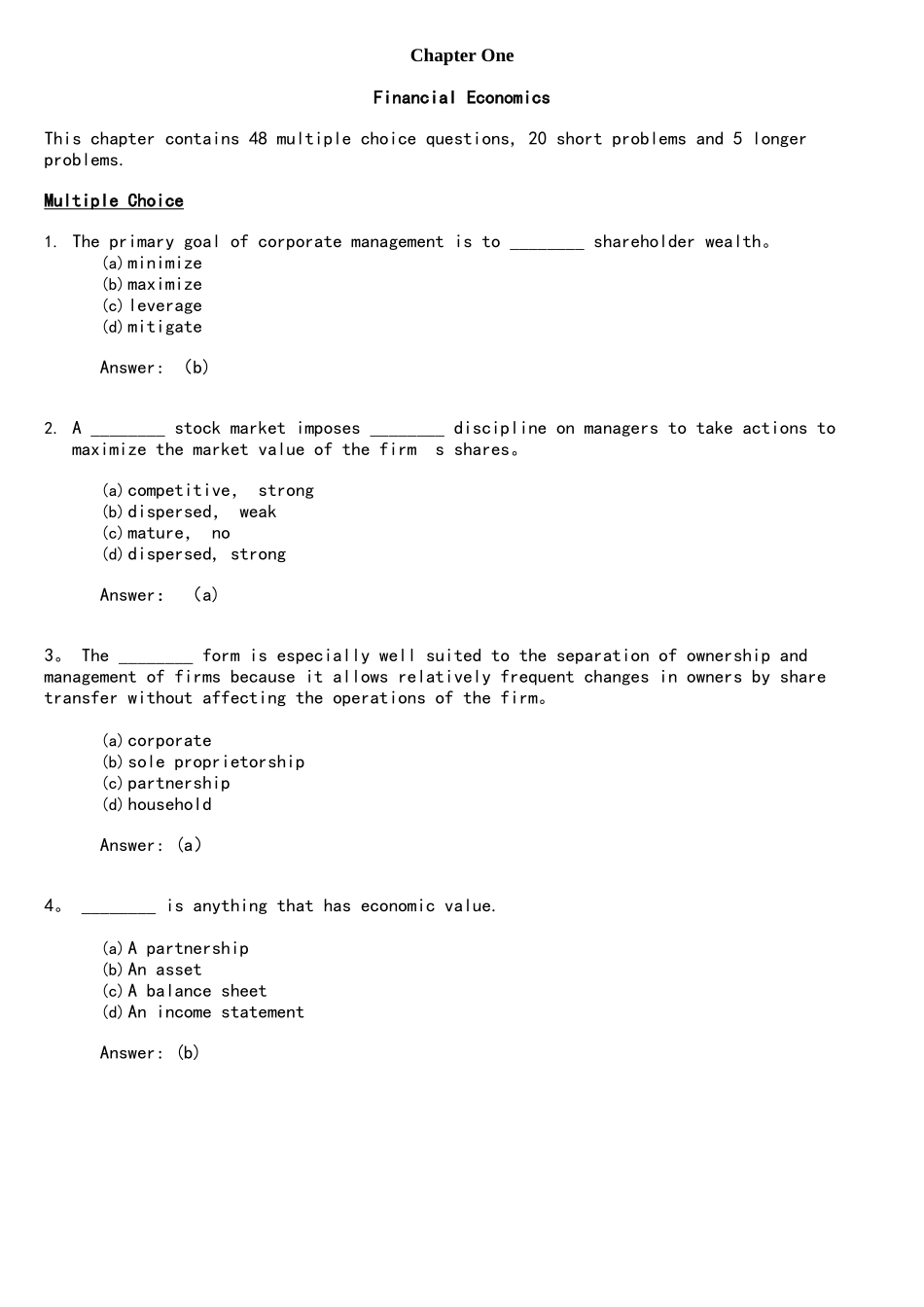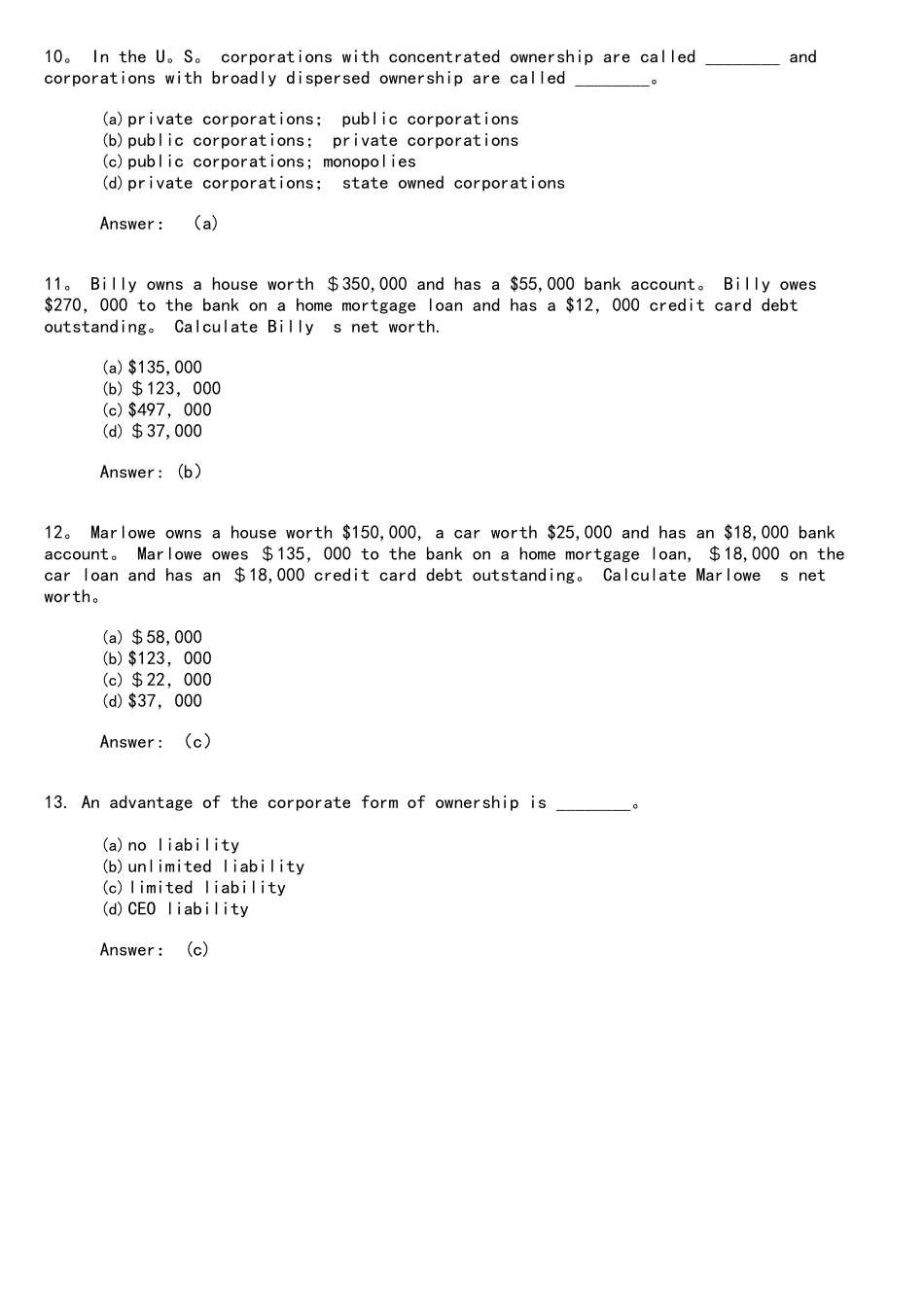Chapter One Financial EconomicsThis chapter contains 48 multiple choice questions, 20 short problems and 5 longer problems.Multiple Choice1. The primary goal of corporate management is to ________ shareholder wealth。(a)minimize(b)maximize(c)leverage(d)mitigateAnswer: (b)2. A ________ stock market imposes ________ discipline on managers to take actions to maximize the market value of the firms shares。(a)competitive, strong(b)dispersed, weak(c)mature, no(d)dispersed, strongAnswer: (a)3。 The ________ form is especially well suited to the separation of ownership and management of firms because it allows relatively frequent changes in owners by share transfer without affecting the operations of the firm。(a)corporate(b)sole proprietorship(c)partnership(d)householdAnswer: (a)4。 ________ is anything that has economic value.(a)A partnership(b)An asset(c)A balance sheet(d)An income statementAnswer: (b)5。 A households wealth or net worth is measured by the value of its ________ minus its ________。(a)liabilities; assets(b)assets; liabilities(c)stocks; bonds(d)bonds; liabilitiesAnswer: (b)6. The branch of finance dealing with financial decisions of firms is called ________ or ________。(a)investments; international finance(b)markets; institutions(c)business finance; institutions(d)business finance; corporate financeAnswer: (d)7. Bonds promise ________ cash payments, while stocks pay the ________ value left over after all other claimants have been paid。(a)variable; residual(b)residual; fixed(c)fixed; residual(d)fixed; variableAnswer: (c)8. The day-to-day financial affairs of the firm are usually referred to as ________.(a)working capital management(b)capital structure(c)capital budgeting(d)strategic planningAnswer: (a)9。 A disadvantage of the sole...


